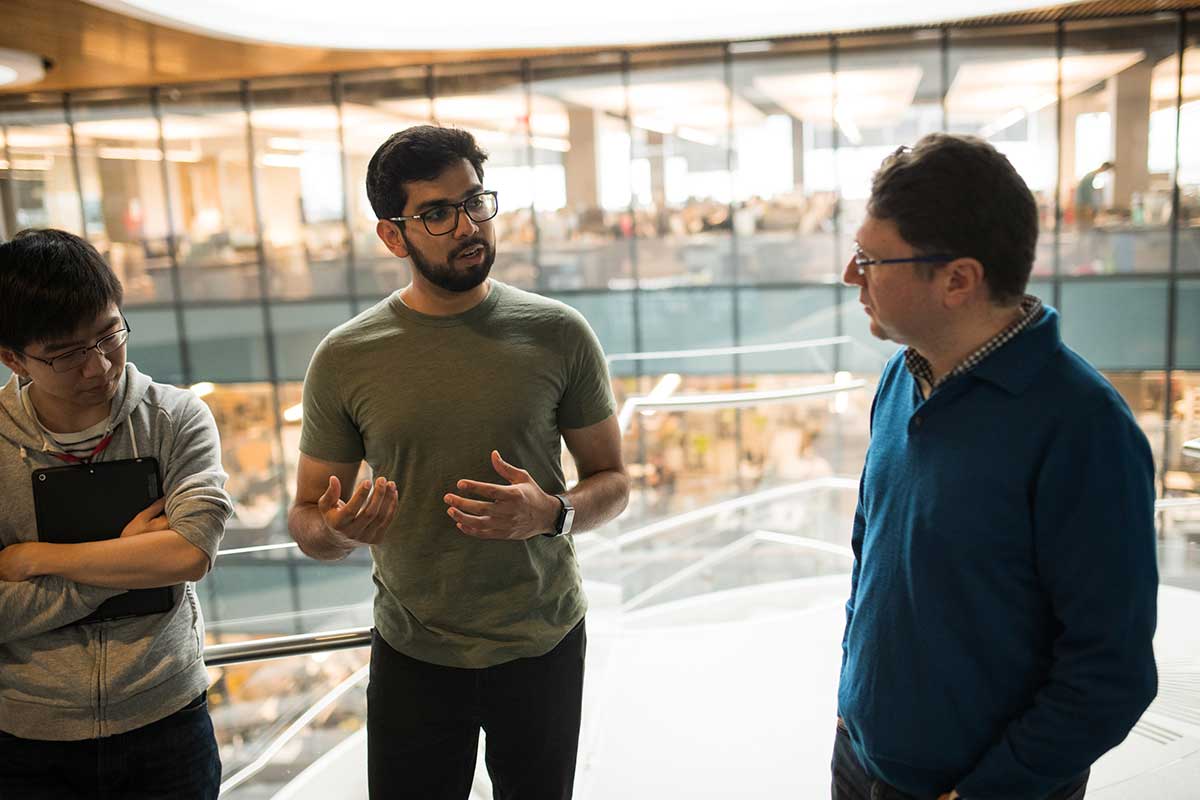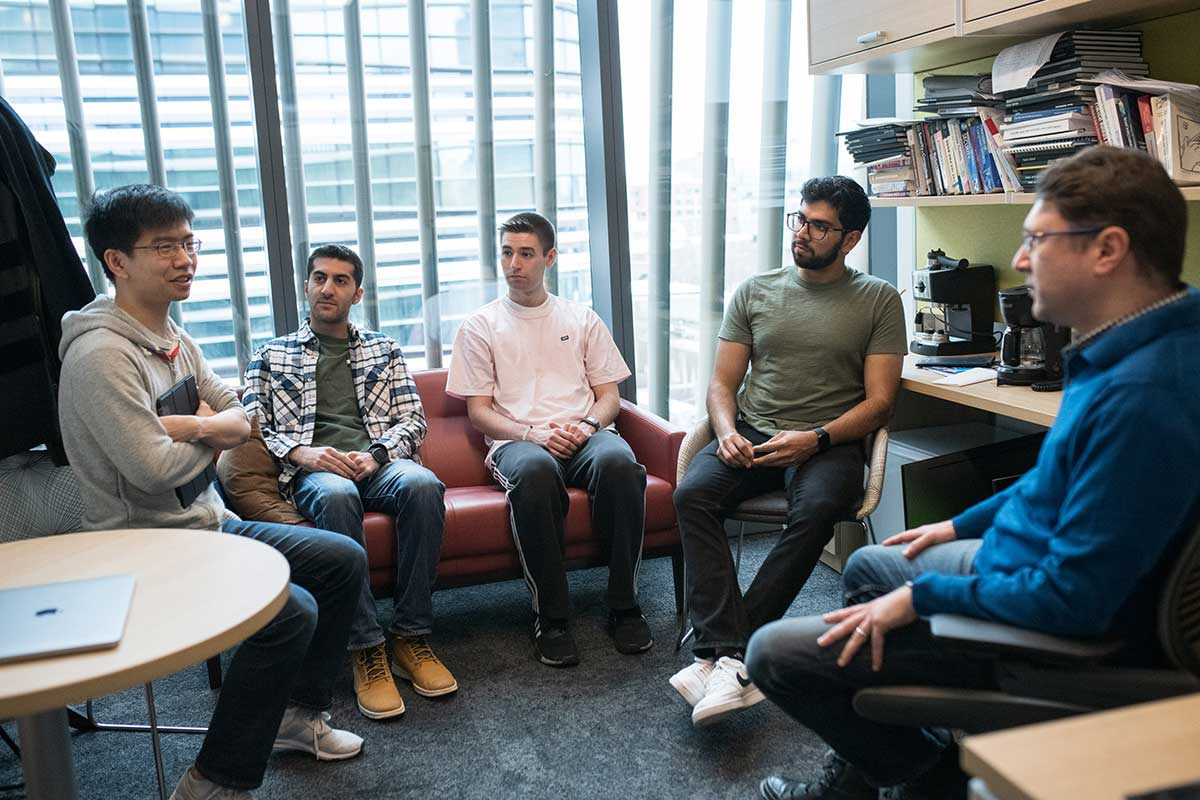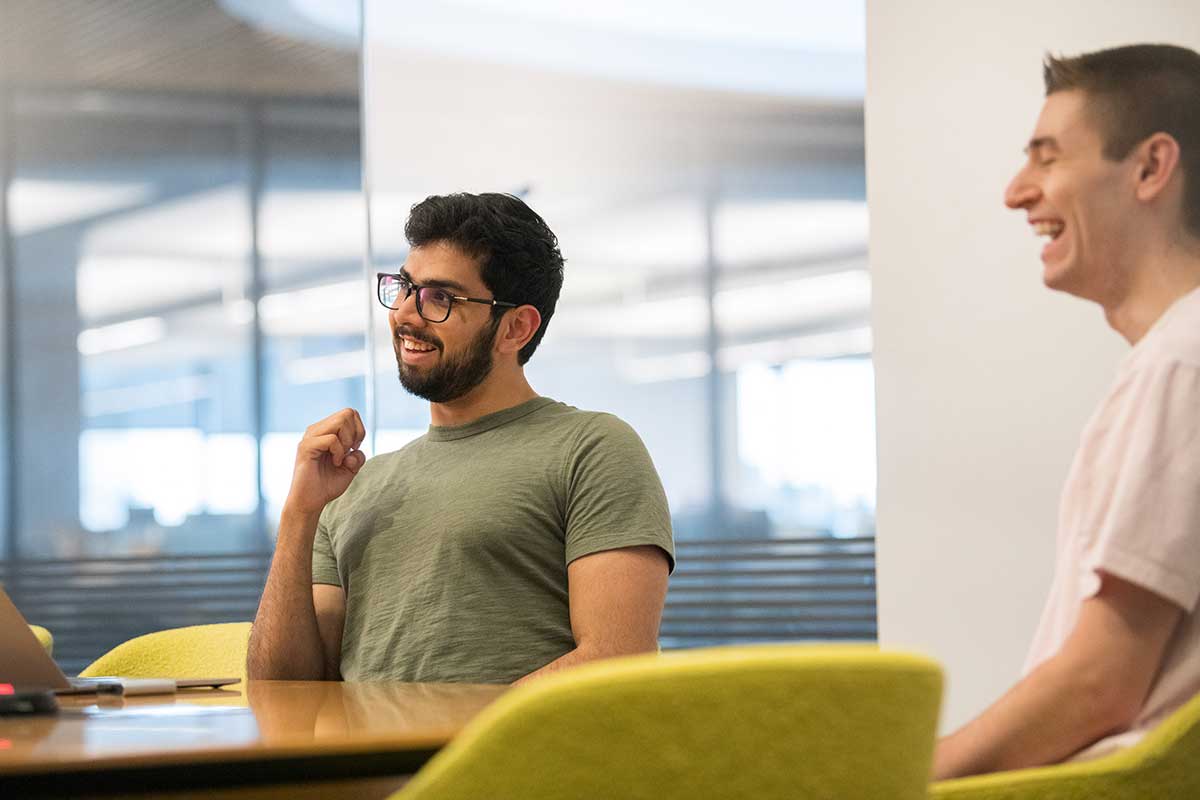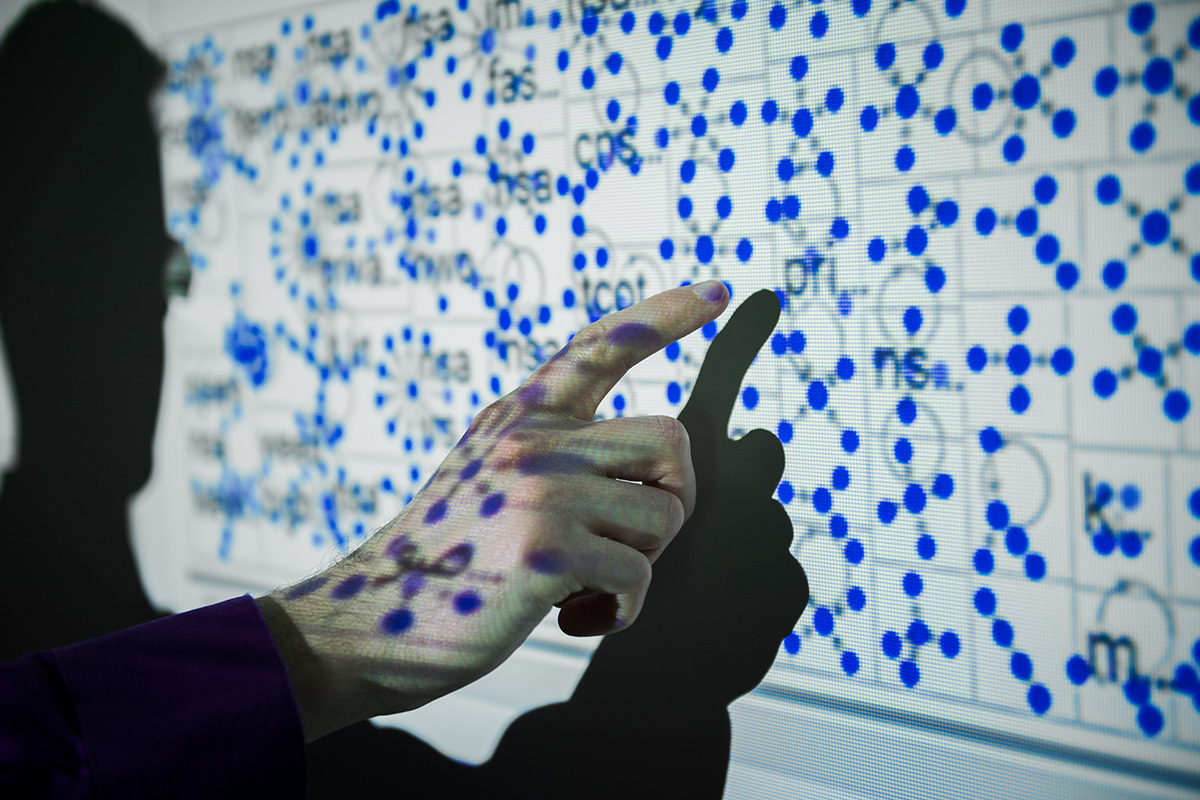
Systems and Networking at Khoury College of Computer Sciences
Developing the knowledge essential to making computer systems and networks trustworthy, reliable, and secure
Systems and Networking research at Khoury College of Computer Sciences focuses on building knowledge and practices to identify the vulnerabilities in the digital technology that runs our world. Research is focused on finding new ways to look at all levels of these systems, network architecture, protocols, services, and security and privacy, finding ways to detect and respond to attacks and building stronger systems in the future.
Attacks on computer systems and networks are constant, but AI has increased their intensity and frequency as well as the challenges of mitigating them. At the same time, AI has also opened exciting research vistas; Khoury College faculty and students are developing cutting-edge, AI-based approaches for detecting vulnerabilities and using automation to increase accuracy, speed, and scale of response, as well as making AI systems themselves more resistant to hacks.
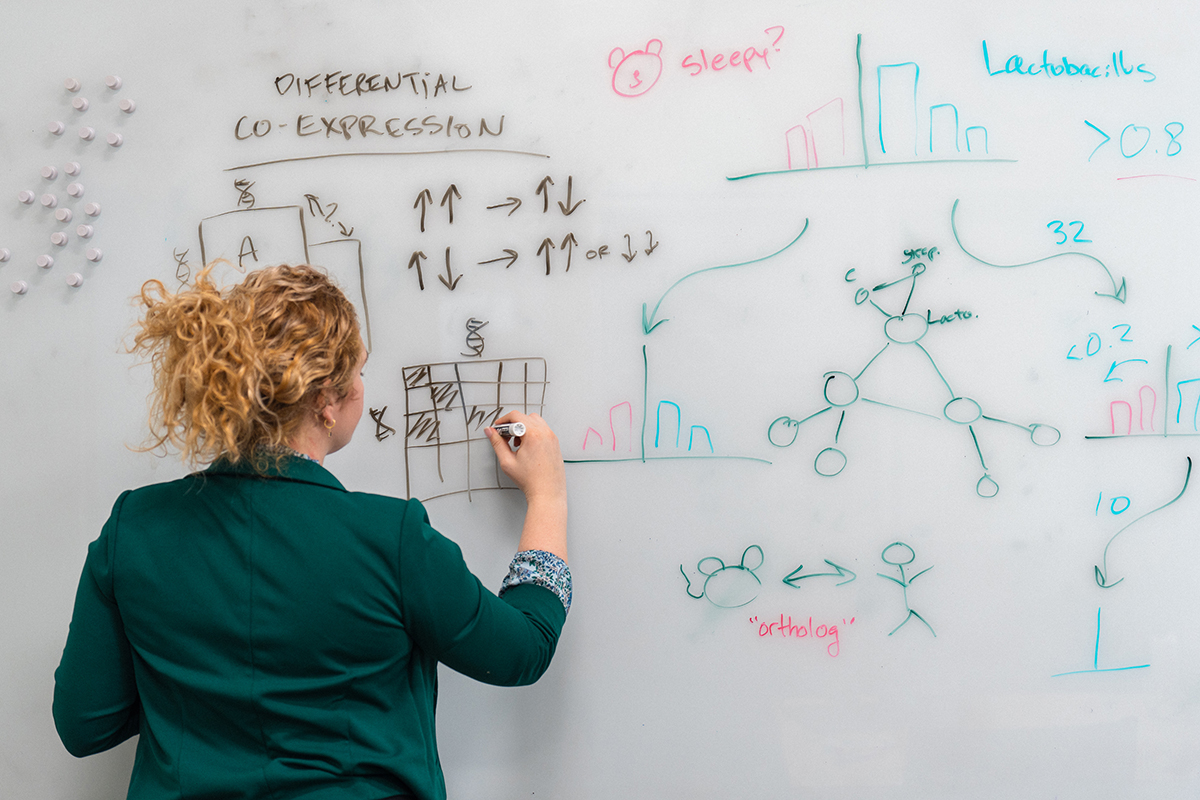
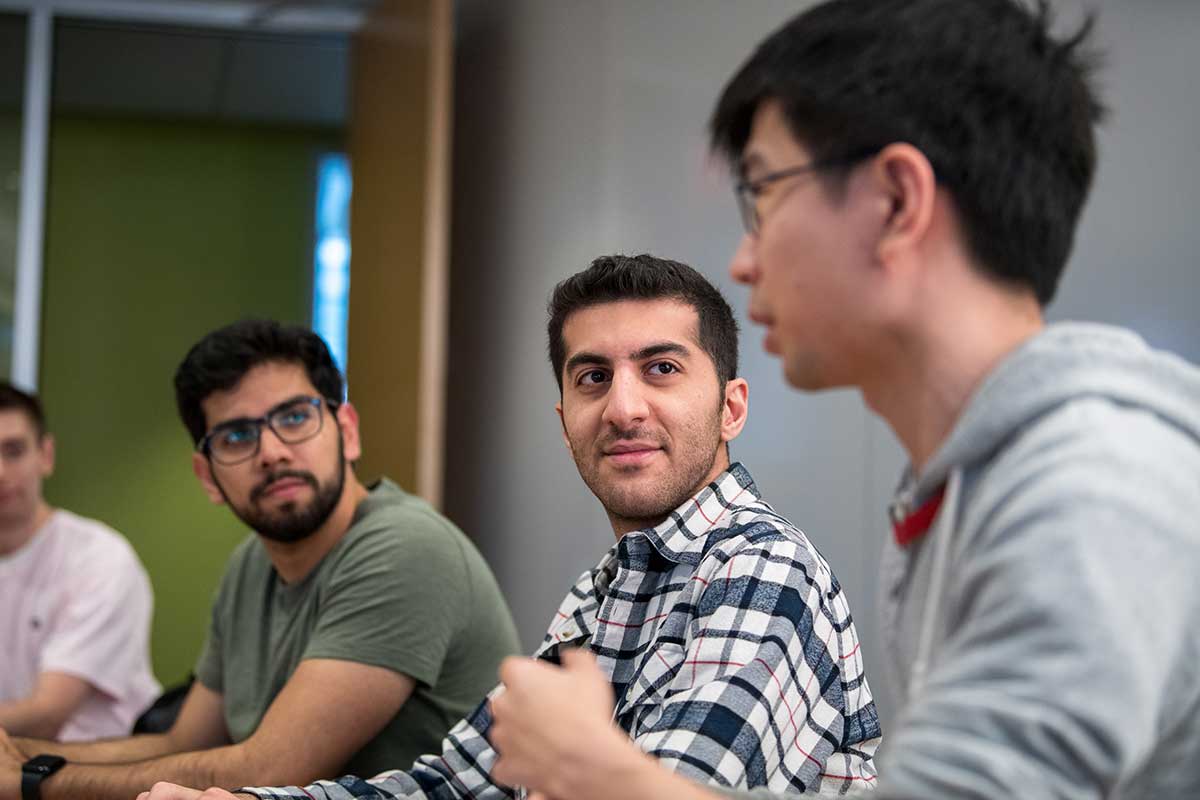
New risks, innovative solutions
One of the critical impacts of Systems and Networking research is exploring how to keep intermediary networks that deliver web content securely. Unlike the early days of the web, when individual users connected directly to a page on a company’s server, the majority of web content now comes through companies that serve as intermediaries, helping deliver vast amounts of data and balance the demand on the networks. Understanding how to keep these services safe has a direct impact on keeping the internet functional and secure.
The internet is no longer just on computers or phones; it’s part of numerous household and personal devices. This brings new risks that defy simple fixes. Khoury College researchers are developing solutions to make these devices and the networks that serve them secure.
Sample research areas
- Cloud computing
- Cyber-physical systems
- Distributed systems
- High performance computing
- Internet measurement
- Mobile/wireless systems
- Networking
- Parallel computing
- Security and privacy
- Storage systems
- Privacy
- Cryptographic risk
- Cybersecurity
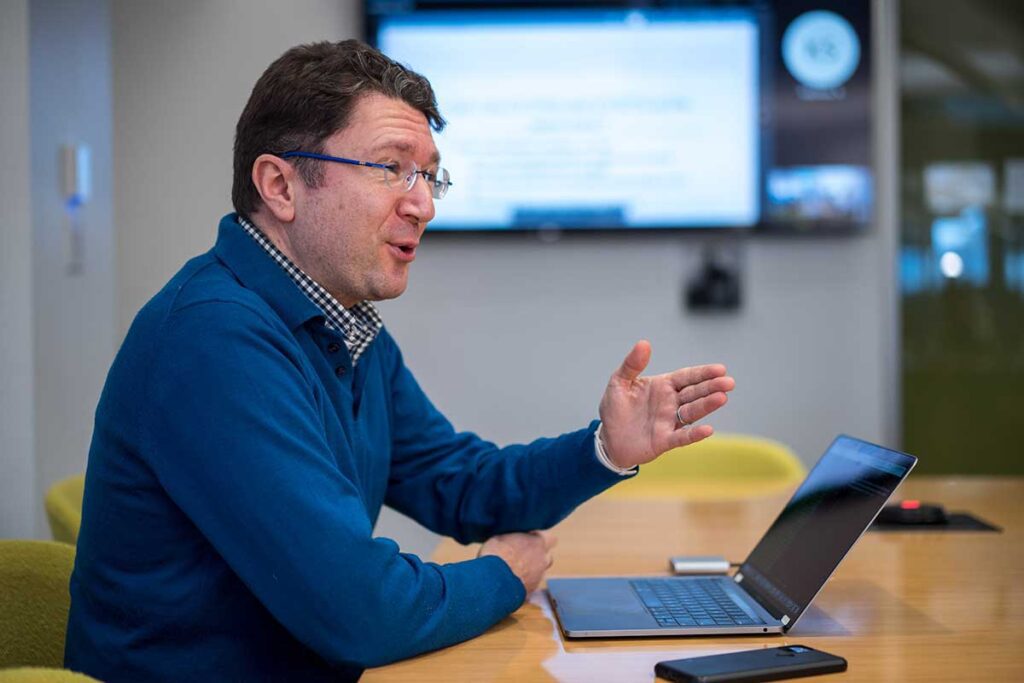
Khoury researchers: At the forefront

Current project highlights
Recent research publications
No Root Store Left Behind
Authors: James Larisch, Waqar Aqeel, Taejoong Chung, Eddie Kohler, Dave Levin, Bruce M. Maggs, Bryan Parno, Christo Wilson
The paper discusses the problem of inconsistent trust levels for digital certificates across different computer systems, something that can cause security vulnerabilities. It proposes a new system to manage these trust levels more effectively, ensuring that all systems have the same up-to-date information about which certificates should be trusted and for what purposes.
Implementation-Oblivious Transparent Checkpoint-Restart for MPI
Authors: Yao Xu, Leonid Belyaev, Twinkle Jain, Derek Schafer, Anthony Skjellum, Gene Cooperman
This research developed a new tool to automatically save the progress of complex computer programs that run across multiple computers using message passing interfaces (MPI). This tool improves system reliability by allowing programs to resume from a saved state after unexpected interruptions, such as power failures or software crashes. It also enhances network efficiency by reducing the need to re-compute large amounts of data.
Problematic Advertising and its Disparate Exposure on Facebook
Authors: Muhammad Ali, Angelica Goetzen, Alan Mislove, Elissa M. Redmiles, Piotr Sapiezynski
This research into social networks and human computer interactions (HCI) found that certain groups of people, such as older adults and minorities, are more likely to see misleading ads on Facebook. The study suggests that both advertisers and algorithms are responsible —essentially, that online advertising doesn’t provide all users equivalent experiences and that some people are exposed to more potentially exploitative or untruthful ads than others.
Related labs and groups
Faculty members
-

David Choffnes
David Choffnes is an associate professor at Khoury College and the executive director of the Cybersecurity and Privacy Institute. He works to improve the privacy, security, performance, and reliability of internet systems, and designs new models to measure these systems.
-

Gene Cooperman
Gene Cooperman is a professor at Khoury College and leader of the High Performance Computing Laboratory. He researches a slew of interdisciplinary computing, math, and physics topics, and contributed to “GEANT4 – A Simulation Toolkit” — the most widely cited paper in high-energy physics.
-

Peter Desnoyers
Peter Desnoyers is an associate professor at Khoury College and a co-founder of the Massachusetts Open Cloud, a multi-institutional collaboration that develops new cloud computing models. His research examines storage issues in operating systems, namely the integration of emerging storage tech into existing software infrastructures.
-
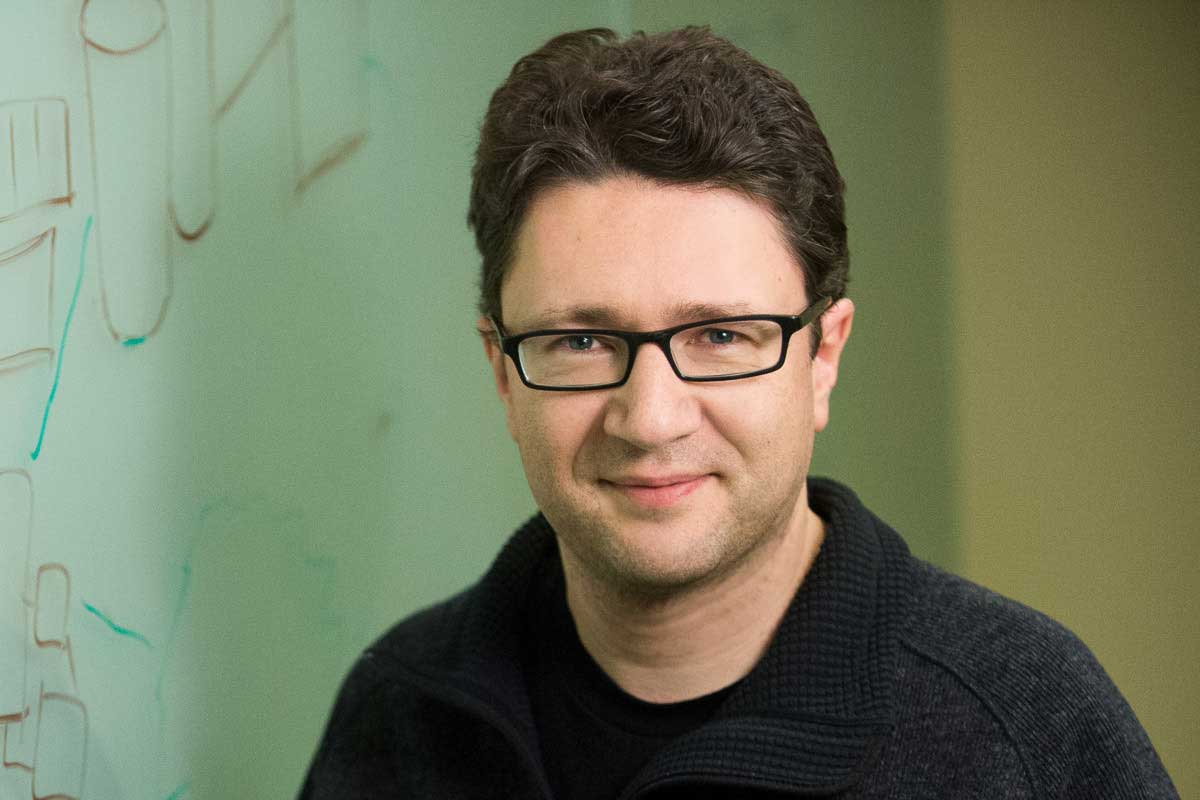
Engin Kirda
Engin Kirda is a professor at Khoury College, co-founder of the multinational Secure Systems Lab, and co-founder of Lastline, Inc., which detects and prevents advanced targeted malware. He has published more than 100 papers on malware analysis and detection, web application security, and social networking security.
-

Alan Mislove
Alan Mislove is a professor and the senior associate dean for academic affairs at Khoury College, and a core faculty member of the Cybersecurity and Privacy Institute. His research deals with distributed systems and networks, with a focus on using social networks to enhance the security, privacy, and efficiency of emerging systems.
-
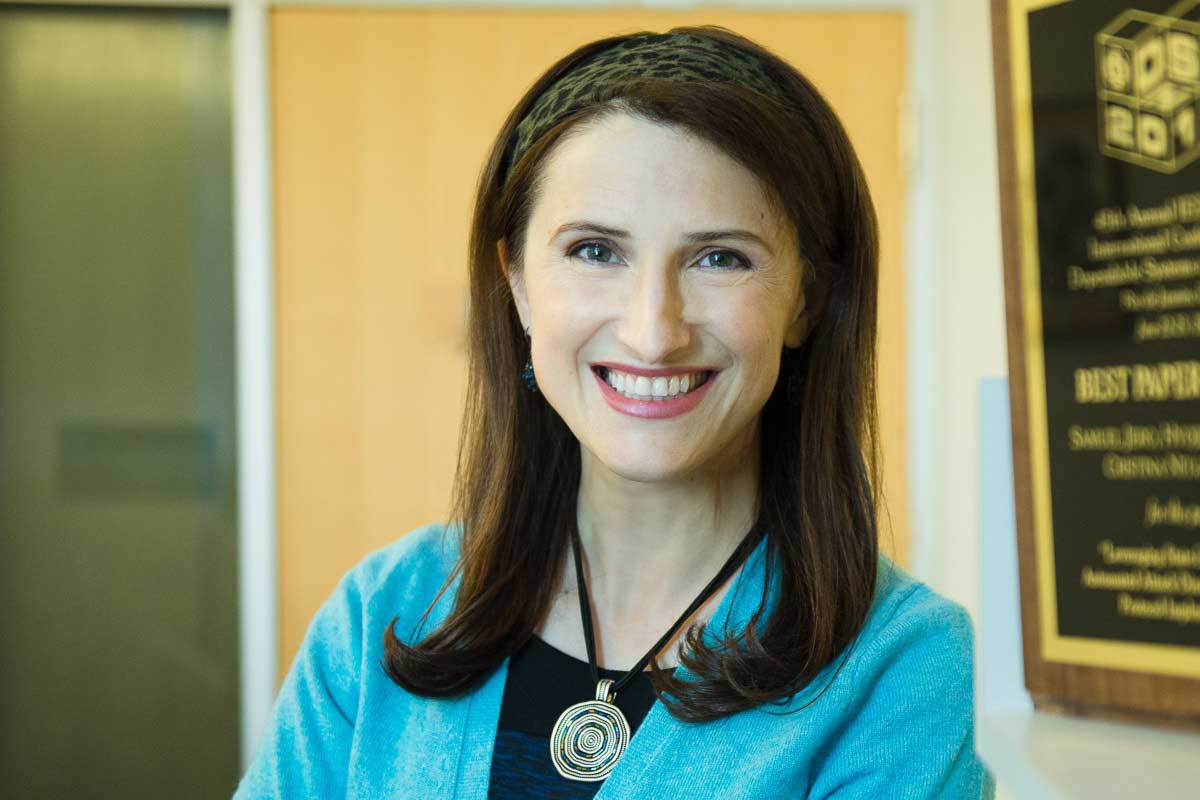
Cristina Nita-Rotaru
Cristina Nita-Rotaru is a professor at Khoury College and a founding member of the Cybersecurity and Privacy Institute. In her research, she designs and builds secure, resilient distributed systems and network protocols.
-
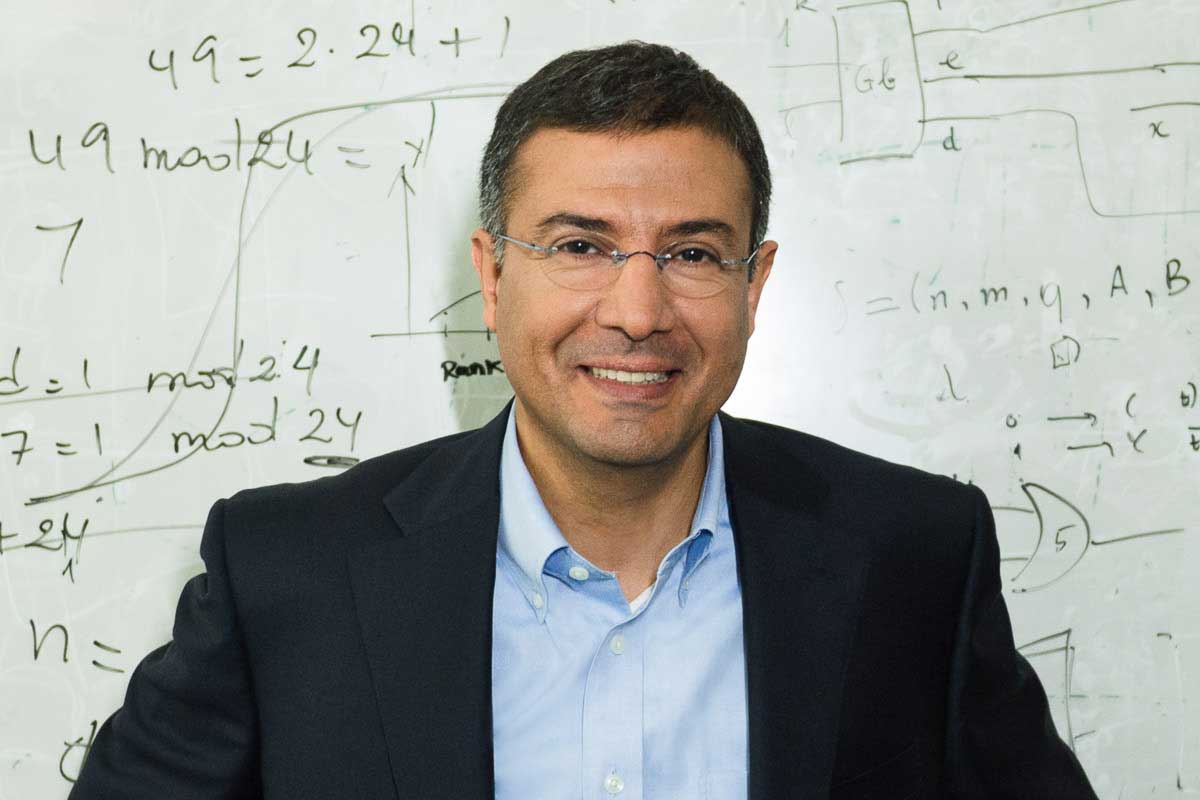
Guevara Noubir
Guevara Noubir is a professor and the executive director of cybersecurity programs at Khoury College. His research examines theoretical and practical aspects of privacy, security, and robustness in networked systems.
-
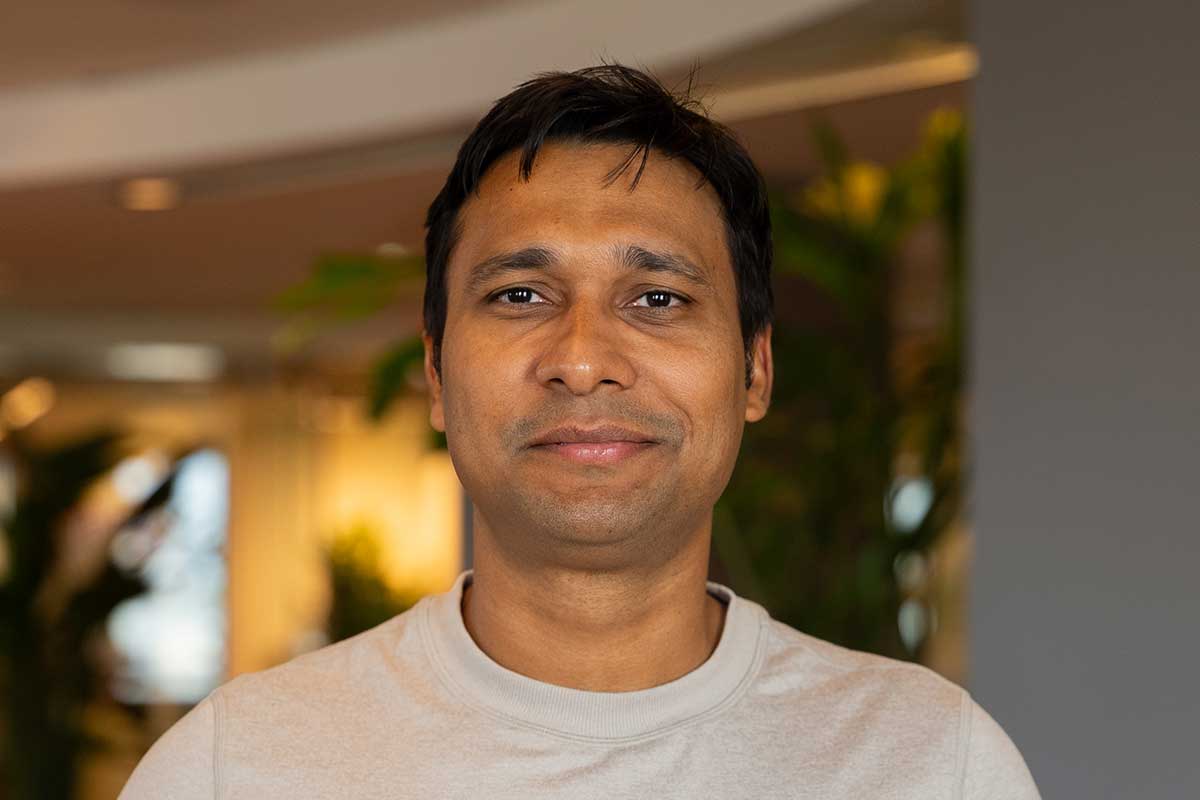
Prashant Pandey
Prashant Pandey is an assistant professor at Khoury College. He researches scalable data systems with robust theoretical foundations for efficient data management, and tackles every level of that challenge, from the theoretical aspects of data structures to the practical issues of scaling data systems.
-
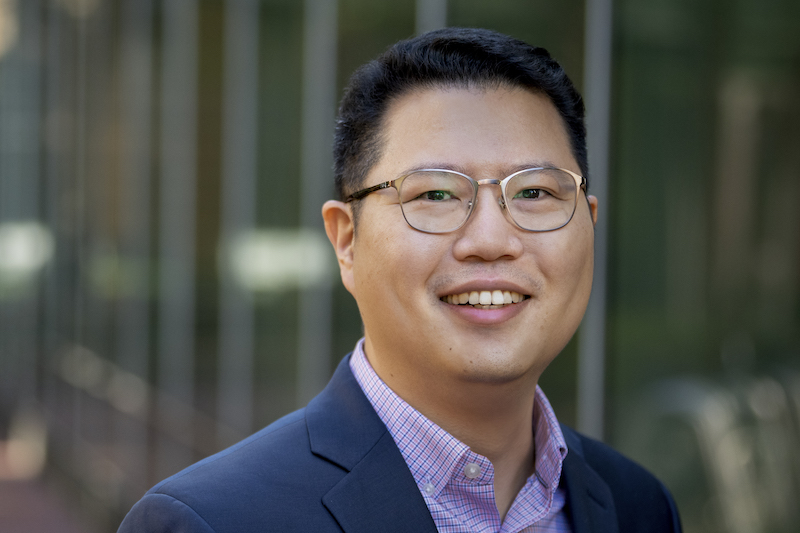
Ji-Yong Shin
Ji-Yong Shin is an assistant professor at Khoury College. His research focuses on formal verification methods that can be applied to system designs, with additional interests in distributed systems, cloud storage systems, and operating systems.
-

Cheng Tan
Cheng Tan is an assistant professor at Khoury College. His systems and security research focuses on building verifiable outsourced services and certified neural networks.
-
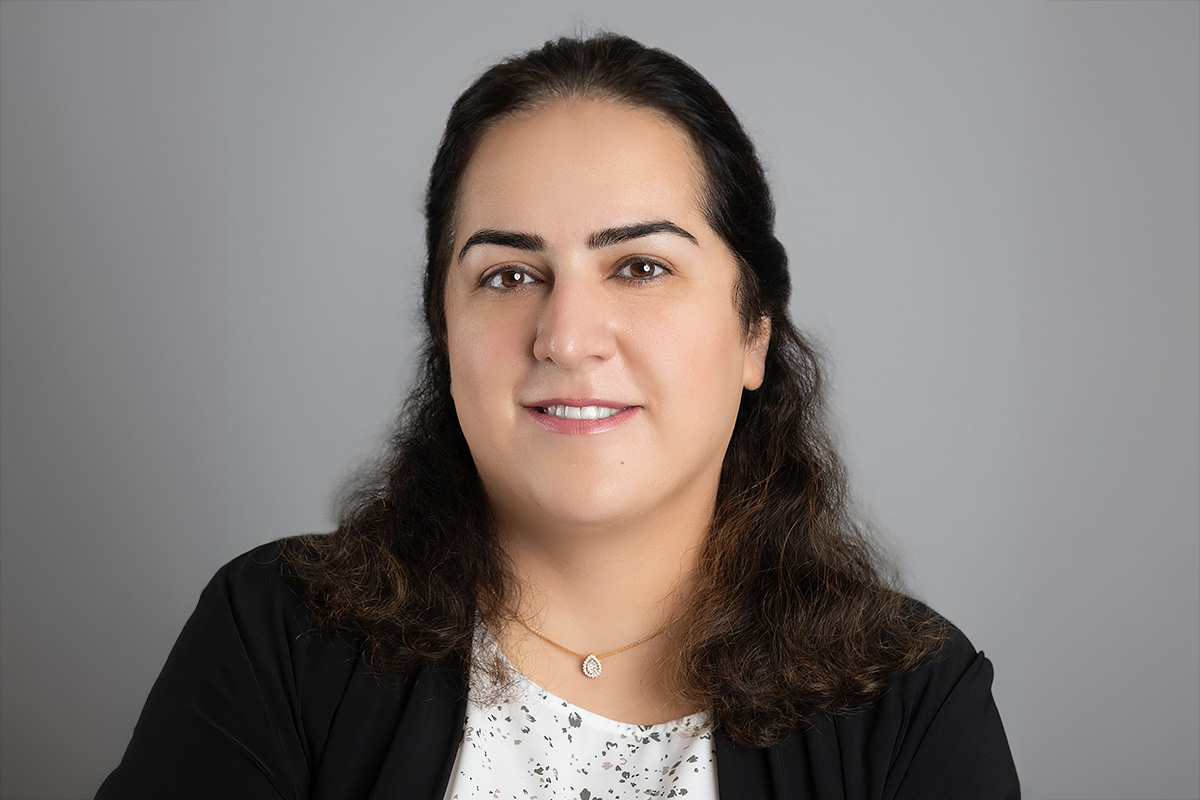
Maryam Tanha
Maryam Tanha is an assistant teaching professor in the Khoury College of Computer Sciences at Northeastern University, based in Vancouver. Tanha’s research interests are deeply rooted in detecting Android malware and designing resilient software-defined networks.
-

Scott Valcourt
Scott Valcourt is an associate teaching professor within Khoury College at Northeastern's Roux Institute in Portland. As a national research leader in cyberinfrastructure, Valcourt has been part of the development of more than a dozen worldwide networking technologies.
-
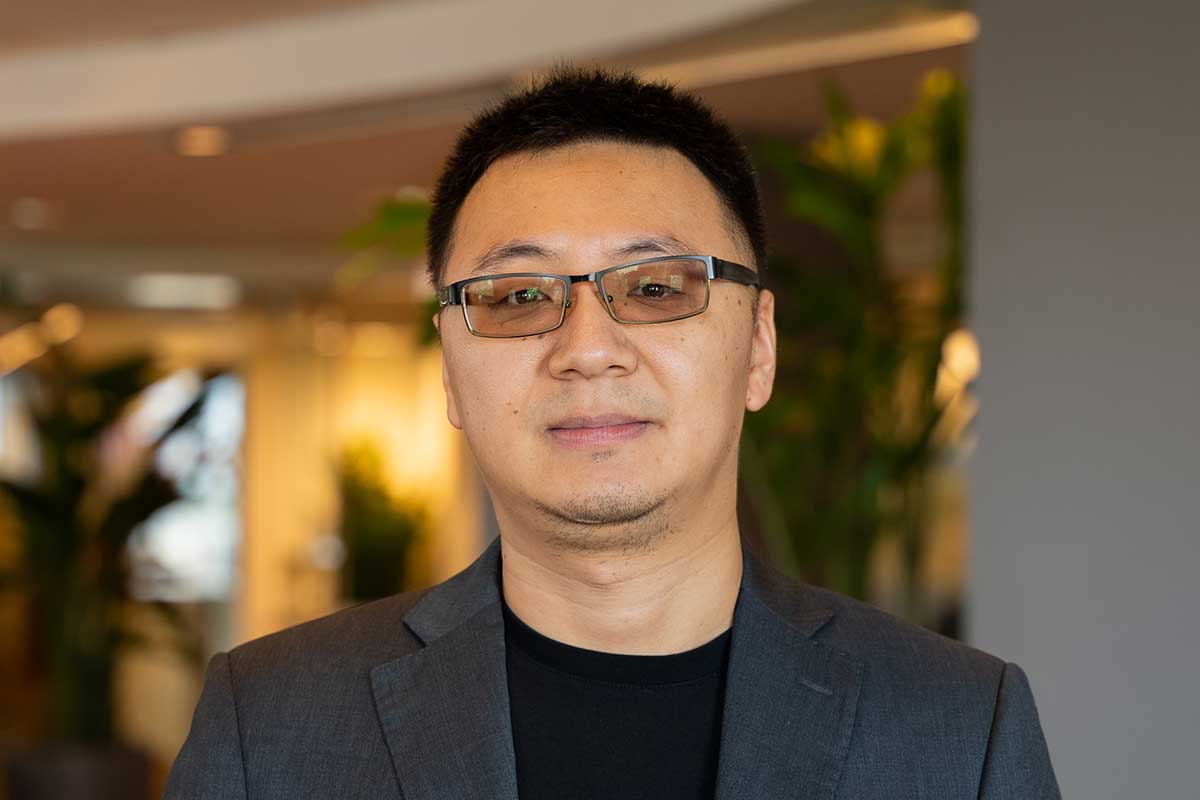
Ziming Zhao
Ziming Zhao is an associate professor at Khoury College. His passion for hacking informs his research into systems and software security, network security, and web security, as well as his use of capture the flag (CTF) cybersecurity competitions as a teaching tool.
